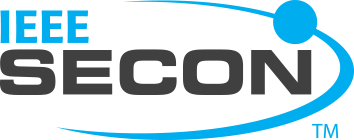IEEE SECON 2018 Call for Demos
The demo session at IEEE SECON 2018 offers a great opportunity to showcase working systems, software and hardware platforms, and any other technologies related to IEEE SECON’s scope of interest. Submissions from both industry and academia are encouraged.
Contributions of interest include, but are not limited to, the following demonstrations:
- Novel applications and techniques, algorithms, protocols
- Novel hardware and tools
- Real-world deployments
- New Research prototypes
- Testbeds and living labs
- Platforms for research and real-world deployments
- Work-in-progress in research, prototyping, and real-world deployments
- Novel challenging problems
- Public-private and industrial-academic collaboration initiatives
Authors of accepted demos will have a dedicated space to exhibit their work, which the conference attendees will have the opportunity to visit during the coffee breaks.
Demo presenters will be required to attend their exhibition space during the coffee breaks. They will also have the opportunity to participate in a madness session during which the authors of each demo up to 3 minutes to make a pitch to attract attention to their demo (2 minutes in case of a high number of pitches).
Depending on the nature of the submitted demos, this year’s SECON may also organize a plenary session to feature selected demos of broad, significant impact. A Best Demo Award will be given to a high-impact demo selected by a committee, taking into account inputs from conference participants.
The abstract of accepted demos will appear in the conference proceeding. Each accepted demo requires at least a one-day registration. For authors co-authoring multiple demos, a one day registration is valid for up to two demos.
Submission Guidelines
Demo submissions will be evaluated mainly based on their potential to stimulate discussions, promote collaborations, and disseminate results of broad community interest.
The demo abstract should follow the standard two-column IEEE conference format, including the names, affiliations, and email addresses of all authors. The demo abstract should have no more than 3 pages in length and have a minimum font size of 10 points. The first two pages should describe the demo itself, and the third page should describe the requirements of the demo such as:
- Equipment to be used for the demo;
- Space needed and setup time required;
- Additional facilities needed, e.g., power and Internet/wireless access.
Demos can be submitted via EDAS at https://edas.info/newPaper.php?c=24744&track=90741, or at https://edas.info/newPaper.php?c=24354 by selecting the “Demo” track.
Important Dates
Submission deadline: April 5, 2018 (Extended to April 15, 2018)
Notification of acceptance: April 20, 2018(Extended to April 23, 2018)
Camera-ready: April 30, 2018


